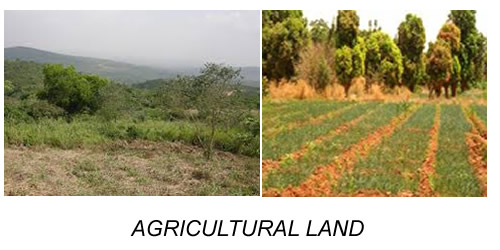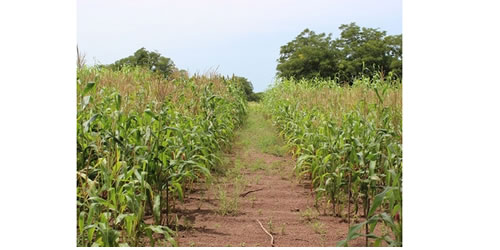Reducing farm lands, recipe for food insecurity – Study

A study conducted by the Department of Land Economy of the Kwame Nkrumah University of Science and Technology (KNUST) has revealed that land for farming is becoming scarcer with serious implications on agriculture and food security.
“Land pressures across the country are resulting in squeezing land access and livelihoods of rural land users.
“With population, urbanisation and other pressures still on the rise, the plight of the rural people could worsen in the absence of appropriate policy responses,” the study revealed.
“This state of affairs requires immediate and appropriate policy responses that would adequately address the issues”, Professor John Tiah Bugri, Head of the Department of Land Economy, KNUST, stated when he presented the findings at a stakeholders’ workshop in Accra on Tuesday.
The research was conducted by a team led by Prof Bugri and Dr Eric Yeboah, a Lecturer at the Department to carry out the study in selected districts in Western Region and parts of the Northern Region.
The research said in the absence of a proper policy framework, the situation would lead to chaos and unrest among community members and may sometimes lead to loss of lives.
The report identified land grabbing and acquisition by both local and foreign investors in the face of oil production in the country as well as the acquisition of land by the state for other purposes as critical factors to scarcity of land in the country.
The study highlights how rural people in Ghana are now contending with new pressures from increasing land scarcity as several factors are currently at play, rendering livelihoods and food security increasingly vulnerable.
The study draws evidence from the Egyam, Punpune and Apowa in the Ahanta West District, near Sekondi-Takoradi from the southern part of Ghana and communities in the Savelugu-Nanton Municipality of the Northern Region.
The study indicated that compulsory acquisition of land in the rural areas by the state further reduces the availability of land in the area for farming and other agricultural uses.
It said Government has acquired an estimated 1,200 acres of land for the purpose of constructing an oil refinery across the Punpune, Egyam and Apowa area while in the north some lands in the Savelgu-Nanton forms part of the recently acquired 8,000 acres of land by the state for the Airport expansion project.
It said in these two instances, the lands acquired were previously farm lands for the rural people but as it is a constitutional mandate that when there is compulsory acquisition of land; fair, adequate and prompt compensation should be paid- however, in both cases, compensation has not been paid by the state.
Moreover, construction of the oil refinery in Punpune and surrounding areas has not commenced, 10 years after the land acquisition. This has effectively frozen farm lands in the area.
The study said changing climatic conditions are also contributing to shape land issues in the rural agrarian communities.
Although the trend is being experienced nationwide, the savannah ecological zone of the northern part of the country is intensively affected.
This state of affairs is resulting in climate change-induced migration in search of other means of survival which helps to explain the growing incidence of migration from the north to the south, especially by the youth.
Despite the existence of several laws and policies to provide safeguards for the rural people, findings from the study highlights that these people are increasingly being squeezed under the current state of affairs.
The study recommended approaches such as block farming as critical in supporting local farmers to be more resilient under the situation while the need to diversify the rural economy, and move the people up along the value chain, through targeted alternative livelihood strategies is also recommended.
There is also the need for the development of inland aquaculture development along the coast, as alternative to fishing in the sea.
This is because, population growth, oil drilling activities and changing climatic conditions are all contributing to adversely affect fishing along the coastal communities.
Catch per fishing trip has seen consistent decline and this has implications for food, nutrition and the livelihoods of the fisher folks and their families.
Source: ghanaweb




